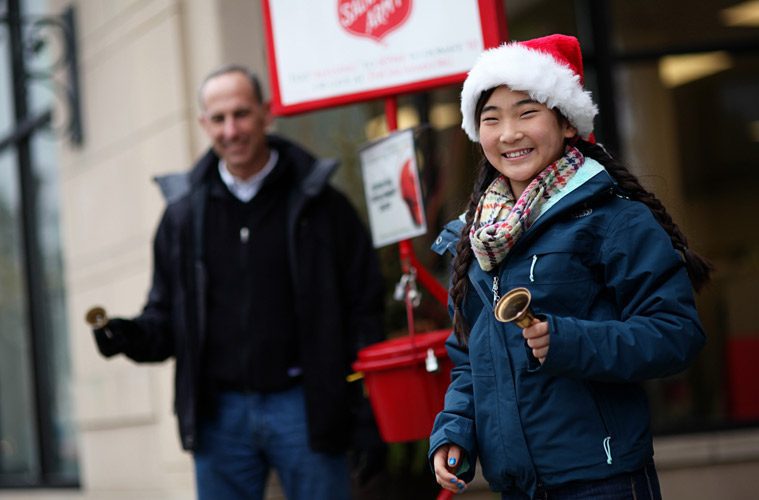Listen to this article
Listen to this article
Loading
Play
Pause
Options
0:00
-:--
1x
Playback Speed- 0.5
- 0.6
- 0.7
- 0.8
- 0.9
- 1
- 1.1
- 1.2
- 1.3
- 1.5
- 2
Audio Language
- English
- French
- German
- Italian
- Spanish
Open text
3 friendship philosophies that are saving my life right now. an excerpt from the life council: 10 friends every woman needs. we learned most of our friendship habits and ideas early in life, when caregivers plopped us on the floor and we were forced to get along with whatever sibling or playmate was on that blanket with us. i think it’s a worthy experiment to think about your friendship philosophies from a grown-up perspective. think about the rules you were taught about being a good friend, which are likely ingrained in you, and then ask yourself if you still believe them to be true. as you do this, you’ll see that we’re all operating from a set of friendship philosophies, whether we’ve formalized them or not. start by brainstorming what you like about certain friendships, and then brainstorm what hasn’t worked so well in the past. in both of these exercises, you might surprise yourself by how you define what matters (and what doesn’t). my most important friendship philosophies are these:. friendship philosophy #1: friendship is a to-do. this is a new practice for me, but it’s one of the things i believe most helped my friendships over the last couple of years: friendship is an item on your to do list, just like cleaning the bathroom or getting your oil changed. i do not want this to be true. i want to be a person who does friendship organically and wholeheartedly, a person who is generous and loving and known for her strong relational priorities. alas, i’m actually an anxious, introverted working mother with a screen addiction and a tendency toward procrastination. the in-person, fun part of friendship comes naturally to me. the mundane work of it does not. the truth is, friendship is work. people don’t talk about that enough. we hear about how marriage is work and parenthood is work, but somehow, maintaining healthy relations with our friends is supposed to be effortless, but i don’t find that to be true. i want to remember that my friend is up for a promotion or that she’s having a minor surgery next tuesday or that her beloved cat just died, and i want to send flowers or a note or a text for all of these things, but without reminders, i will not. maintaining care for the best friends in my life is emotional labor. sometimes it’s physical labor. it’s not all fun and memories. the work of friendship turns out to be worth it. when i started thinking about my closest friendships as part of my to-do list—not as a chore, but as a priority that needed to be attended to—my friendships changed. and my friends noticed. friendship philosophy #2: believe the best. i believe all relationships go more smoothly when we assume positive intentions. i’m not trying to be unrealistically positive in the face of friendship complications, but when we jump to negative conclusions about a friend’s behavior, we are often wrong and create a rift where there wasn’t one. when something seems off with a friend—maybe they’re not returning our texts or maybe they forgot our birthday or maybe we were on the receiving end of a casually snide remark—what if, instead of assuming that they’re mad at us, that they no longer like us, that they’re secretly out to get us, we assign neutral intent? it doesn’t mean you’re being naive or gullible if you decide that they’re busy or that a comment wasn’t personal. we can actively choose to believe our friends have the best of intentions, just as we hope they would believe the best about us. sometimes our own insecurities cause us to be suspicious, territorial and controlling. deciding to believe the best in my friends and expecting them to believe the best in me has infused my relationships with love. friendship philosophy #3: just go. this is a personal directive that has shifted over the years depending on my life circumstances, but i noticed decades ago that i rarely regret going to dinner or on the trip or to the party. and often, i do regret not going. there are always reasons not to go: finances or a breastfeeding baby or a calendar conflict are legitimate excuses to bow out of anything. and sometimes we may need the self-care that comes with not going. but when we do go—even if it costs us some sleep or some money or is inconvenient—our very presence opens the door to connection and memory-making and being known as a person who shows up. i put a high priority on the milestones in life, like weddings and funerals and other major events. i’ve decided that i must just go to those things, and unless there’s a glaring reason to do so, i will not weigh the pros and cons or agonize over that decision. our presence does matter. there is a spiritual communion among friends when you show up for the big moments. what about the smaller stuff? grabbing coffee, a last-minute double date, a dinner or a walk or a football game watch party? sometimes i think we wait for the “perfect” opportunity to be joyfully spontaneous, but that’s just not going to happen. when a casual plan starts to come together, you may not love the choice of restaurant or everyone else who is invited or the last-minute timing. ask yourself if you’ll regret not going, and be honest about how much your attendance or absence will affect your relationships. just go! err on the side of relationship. these are the philosophies that are most important to my friendships, and once i’d clarified them, it made many relationship decisions easier. brainstorm some of your own friendship philosophies, guideposts, or principles. think about behaviors and rules you’re already abiding by (such as always picking up when friends call or taking them out for a birthday lunch each year), and go from there. you may decide that some of your friendship habits are ready for a refresh. committing friendship philosophies to paper is by no means a requirement to strengthening your own relationships, but it was a helpful exercise for me. if you just have no idea where to start, pay attention to your friendships over the next few weeks or months, and notice what works well and what could use some improvement. taken from the life council by laura tremaine. copyright © 2023 by laura tremaine. used by permission of zondervan. do good:. read the life council: 10 friends every woman needs (zondervan, 2023) by laura tremaine. get on the list for good words from the good word and get a boost of inspiration in 1 minute a day with a daily affirmation from scripture list this sent straight to your inbox. it’s an email to help you start your day with goodness. need some extra motivation to do good today? follow caring magazine on instagram for inspiring stories, podcasts and more to get you in the fight for good.
Open context player
Close context player
Plays:-Audio plays count
3 friendship philosophies that are saving my life right now. an excerpt from the life council: 10 friends every woman needs. we learned most of our friendship habits and ideas early in life, when caregivers plopped us on the floor and we were forced to get along with whatever sibling or playmate was on that blanket with us. i think it’s a worthy experiment to think about your friendship philosophies from a grown-up perspective. think about the rules you were taught about being a good friend, which are likely ingrained in you, and then ask yourself if you still believe them to be true. as you do this, you’ll see that we’re all operating from a set of friendship philosophies, whether we’ve formalized them or not. start by brainstorming what you like about certain friendships, and then brainstorm what hasn’t worked so well in the past. in both of these exercises, you might surprise yourself by how you define what matters (and what doesn’t). my most important friendship philosophies are these:. friendship philosophy #1: friendship is a to-do. this is a new practice for me, but it’s one of the things i believe most helped my friendships over the last couple of years: friendship is an item on your to do list, just like cleaning the bathroom or getting your oil changed. i do not want this to be true. i want to be a person who does friendship organically and wholeheartedly, a person who is generous and loving and known for her strong relational priorities. alas, i’m actually an anxious, introverted working mother with a screen addiction and a tendency toward procrastination. the in-person, fun part of friendship comes naturally to me. the mundane work of it does not. the truth is, friendship is work. people don’t talk about that enough. we hear about how marriage is work and parenthood is work, but somehow, maintaining healthy relations with our friends is supposed to be effortless, but i don’t find that to be true. i want to remember that my friend is up for a promotion or that she’s having a minor surgery next tuesday or that her beloved cat just died, and i want to send flowers or a note or a text for all of these things, but without reminders, i will not. maintaining care for the best friends in my life is emotional labor. sometimes it’s physical labor. it’s not all fun and memories. the work of friendship turns out to be worth it. when i started thinking about my closest friendships as part of my to-do list—not as a chore, but as a priority that needed to be attended to—my friendships changed. and my friends noticed. friendship philosophy #2: believe the best. i believe all relationships go more smoothly when we assume positive intentions. i’m not trying to be unrealistically positive in the face of friendship complications, but when we jump to negative conclusions about a friend’s behavior, we are often wrong and create a rift where there wasn’t one. when something seems off with a friend—maybe they’re not returning our texts or maybe they forgot our birthday or maybe we were on the receiving end of a casually snide remark—what if, instead of assuming that they’re mad at us, that they no longer like us, that they’re secretly out to get us, we assign neutral intent? it doesn’t mean you’re being naive or gullible if you decide that they’re busy or that a comment wasn’t personal. we can actively choose to believe our friends have the best of intentions, just as we hope they would believe the best about us. sometimes our own insecurities cause us to be suspicious, territorial and controlling. deciding to believe the best in my friends and expecting them to believe the best in me has infused my relationships with love. friendship philosophy #3: just go. this is a personal directive that has shifted over the years depending on my life circumstances, but i noticed decades ago that i rarely regret going to dinner or on the trip or to the party. and often, i do regret not going. there are always reasons not to go: finances or a breastfeeding baby or a calendar conflict are legitimate excuses to bow out of anything. and sometimes we may need the self-care that comes with not going. but when we do go—even if it costs us some sleep or some money or is inconvenient—our very presence opens the door to connection and memory-making and being known as a person who shows up. i put a high priority on the milestones in life, like weddings and funerals and other major events. i’ve decided that i must just go to those things, and unless there’s a glaring reason to do so, i will not weigh the pros and cons or agonize over that decision. our presence does matter. there is a spiritual communion among friends when you show up for the big moments. what about the smaller stuff? grabbing coffee, a last-minute double date, a dinner or a walk or a football game watch party? sometimes i think we wait for the “perfect” opportunity to be joyfully spontaneous, but that’s just not going to happen. when a casual plan starts to come together, you may not love the choice of restaurant or everyone else who is invited or the last-minute timing. ask yourself if you’ll regret not going, and be honest about how much your attendance or absence will affect your relationships. just go! err on the side of relationship. these are the philosophies that are most important to my friendships, and once i’d clarified them, it made many relationship decisions easier. brainstorm some of your own friendship philosophies, guideposts, or principles. think about behaviors and rules you’re already abiding by (such as always picking up when friends call or taking them out for a birthday lunch each year), and go from there. you may decide that some of your friendship habits are ready for a refresh. committing friendship philosophies to paper is by no means a requirement to strengthening your own relationships, but it was a helpful exercise for me. if you just have no idea where to start, pay attention to your friendships over the next few weeks or months, and notice what works well and what could use some improvement. taken from the life council by laura tremaine. copyright © 2023 by laura tremaine. used by permission of zondervan. do good:. read the life council: 10 friends every woman needs (zondervan, 2023) by laura tremaine. get on the list for good words from the good word and get a boost of inspiration in 1 minute a day with a daily affirmation from scripture list this sent straight to your inbox. it’s an email to help you start your day with goodness. need some extra motivation to do good today? follow caring magazine on instagram for inspiring stories, podcasts and more to get you in the fight for good.
Listen to this article

















